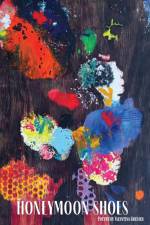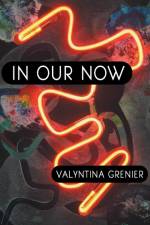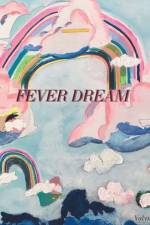av Valyntina Grenier
235,-
Poetry Collection by Valyntina Grenier.Valyntina is a multi-genre eco artist living with her wife in Tucson, Arizona. She works with paint, ink, Neon, encaustic medium, recycled or repurposed materials and words. She is the author of three poetry chapbooks, the tête-bêche Fever Dream/ Take Heart (Cathexis Northwest Press 2020) and In Our Now (Finishing Line Press 2022). Find more of her work at valyntinagrenier.com or find her on Insta @valyntinagrenier.In Honeymoon Shoes, Valyntina Grenier writes "There is always already a war going on / all our dead / all our little deaths." These poems rage against capitalism and brutality, while insisting on tenderness. Following the zigzagging, musical logic of sound and play, they remind us "how lucky to live / to hear a donkey bray." This is a collection and a poet I won't forget. - Susan Nguyen, author of Dear Diaspora ¿¿Valyntina Grenier's Honeymoon Shoes exhibits our doubtfulness in living, in real-time: When catastrophe strikes, we wonder, "What is old, what new?" If the ugliness that surrounds us is not new, then how do we categorize the chaos we've witnessed since 2016? Grenier responds, "The world created us-" and "we make disasters." What can we do with this wildness but admit we are a part of it? How can a white woman speak about her white privilege without centering herself in the very act? She can't. But she can say that she can't, and she can make sure her canvas doesn't stay blank. In "City's Limit," Grenier zooms out to offer an urban overview, reflecting on city planning, urban gardeners working in memory of George Floyd, and the distinct motivations humans harbor to tame nature. Do we plant gardens to make something beautiful? To conquer it? Or, as in Minneapolis, to heal? The geometry of the black man-his cells, building to organs, pulsing blood through lungs-is "perfect," she writes. More perfect than the curated rose, which-can't we all see that rose as the destructive ideal of a so-called gentleman by now? I am wowed by the way the poet asks me to re-see the elements in light of human violence, to consider "the velvet crust the spade turns." - Sara Sams, author of Atom City



